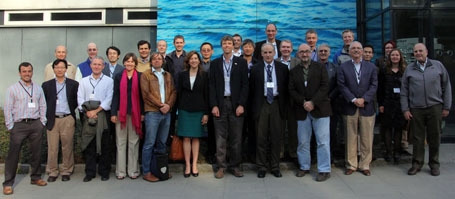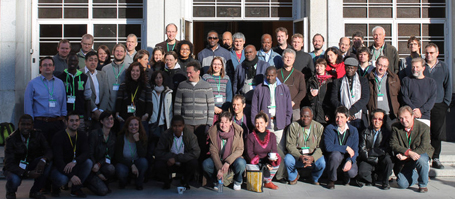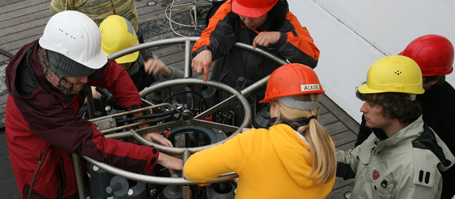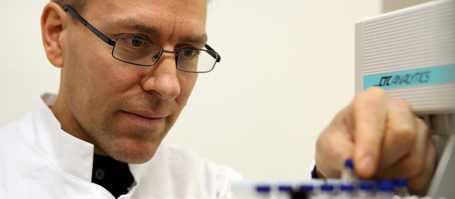When in the mid 90s the WCRP first discussed the implementation of a new internationally coordinated programme, the first hot public discussion about human-induced (anthropogenic) climate change had just reached its peak. Scientists at the Max-Planck Institute for Meteorology in Hamburg, Germany stated that with a probability of 95% the observed increase in global temperature could be attributed to processes linked to human activities. Even though these findings might sound overwhelming, climate scientists still faced many open questions. In particular the role of the oceans in the climate system was mostly unknown.
This was one of the major reasons for the foundation in 1995 of the CLIVAR programme by the WCRP. Within the framework of CLIVAR natural climate variations as well as predictions for future developments should be made. Through internationally coordinated projects global data sets are generated, coordinated model experiments are carried out as well as regional studies, for example, on thermohaline circulation in the Atlantic or climate variability in the Tropical Atlantic. “Such internationally coordinated projects not only support collaboration across borders but also facilitate the generation of global data sets as well as comparable model results to investigate scientific problems that could not be answered by an individual scientist at a single institution”, states Professor Marin Visbeck from GEOMAR Helmholtz Centre for Ocean Research Kiel, who is chairing the CLIVAR Scientific Steering Group (SSG) jointly with Dr. Lisa Goddard, director of the International Research Institute in New York, USA. This week the CLIVAR SSG convenes for its 20th session in Kiel, Germany. More than 30 scientists from 16 countries are participating. The meeting is supported by GEOMAR and the Cluster of Excellence “The Future Ocean”.
“During the past 20 years internationally coordinated programmes such as CLIVAR have helped enormously to generate an excellent framework for research in Germany, as well as in Europe”, Martin Visbeck continues. An outstanding example is the so-called ARGO programme. Within a few years it was possible to establish a global observational network with more than 3000 deep sea drifters that enables the study of the variability in the ocean for the first time. “Without CLIVAR, the understanding of the global climate system as well as regional phenomena such as the El Niño Southern Oscillation phenomenon or the North Atlantic Oscillation would not be as advanced”, Lisa Goddard agrees. “In relationship to the effort necessary to operate such global programmes the return is much higher”, Goddard continues.
The major topic of the SSG meeting in Kiel is the discussion of new directions for the CLIVAR programme in the coming years. “We will adjust the goals of the programme according to new findings and frameworks in order to ensure a successful continuation of the programme till 2020”, explains Professor Visbeck.
Links:
www.clivar.org International Climate Variability and Predictability Programme
www.geomar.de The GEOMAR Helmholtz Centre for Ocean Research Kiel
www.futureocean.org Excellence cluster “The Future Ocean”
Images:
Under www.geomar.de/en/news/article/internationale-kooperation-in-klima-und-meeresforschung images are available for Download.
Contact:
Prof. Dr. Martin Visbeck (GEOMAR, RD1: Ocean Circulation and Climate Dynamics, chair excellence cluster “The Future Ocean”)
mvisbeck@geomar.de
Dr. Andreas Villwock (GEOMAR, Communication & Media), Phone: +49-431 600-2802
avillwock@geomar.de
…



